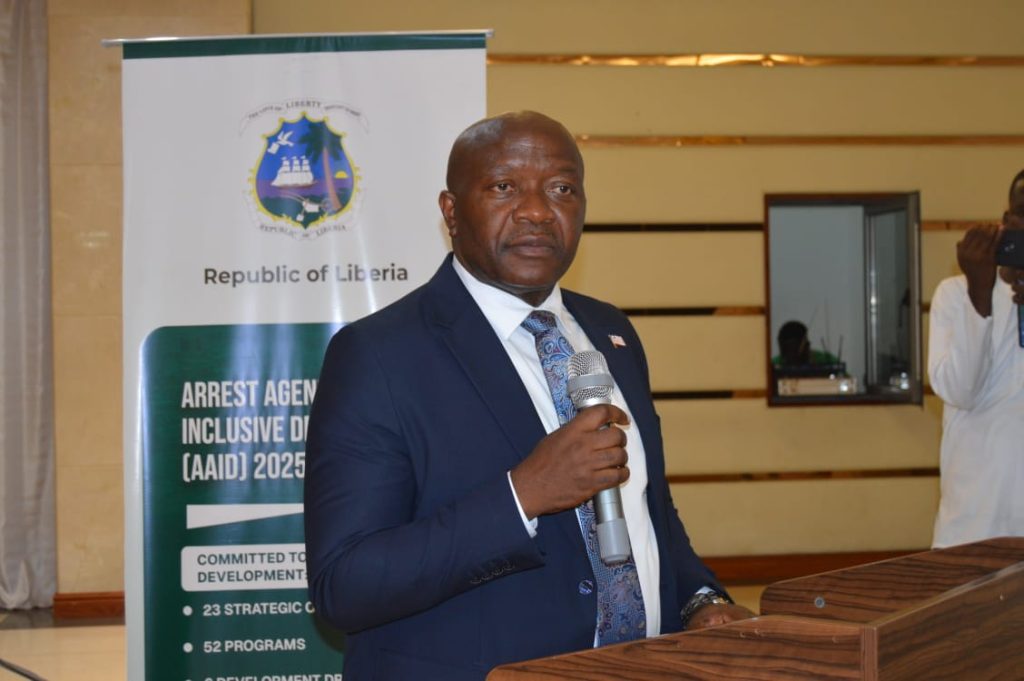On December 4, 2024, Liberia’s Finance and Development Planning Minister, Augustine K. Ngafuan, emphasized the government’s commitment to launching its new development plan, the Arrest Agenda for Inclusive Development (AAID). This initiative aims to reshape Liberia’s future by prioritizing interventions that focus on youth, women, and vulnerable populations. The formal launch of the AAID took place on December 3, 2024, at the EJS Ministerial Complex in Oldest Congo Town, marking a significant step toward realizing inclusive development goals across the nation.
During the event, Minister Ngafuan articulated the importance of the AAID as a fundamental framework governing the country’s direction over the next five years. The plan not only represents the ambitions of the government but has also been developed through a comprehensive process involving diverse stakeholders, including government representatives, the private sector, civil society, and international partners. This collaborative approach has been crucial in ensuring that the AAID is responsive to the dynamic development needs of Liberia.
The AAID aims to foster economic growth that benefits all segments of society, particularly focusing on job creation for youth and opportunities for women and people with disabilities. Minister Ngafuan estimated that real GDP growth would average around 6% over the next five years, which is projected to facilitate significant job creation and higher GDP per capita income. Additionally, the government intends to diversify the economy to lower the trade deficit, which currently stands at $1.1 billion, aiming to reduce it to $636 million.
Furthermore, Ngafuan assured that the development plan emphasizes sustainable practices that not only prioritize economic growth but also address environmental concerns. The government is dedicated to fostering environmentally responsible growth through climate resilience, green technologies, and the preservation of natural resources. Ngafuan underscored the commitment to ensuring that future generations inherit a healthier and more sustainable environment.
The incorporation of modern infrastructure and technological advancements also plays a vital role in the government’s development strategy. Minister Ngafuan highlighted that feedback gathered during county consultations indicated a pressing demand for improved transportation and infrastructure. As such, one of the government’s objectives includes paving 485 kilometers of primary roads and enhancing community road layouts, thus directly responding to the citizens’ needs.
In summary, Liberia’s AAID seeks to create a framework for inclusive development that addresses economic diversification, job creation, and environmental sustainability while ensuring no social group is left behind. The plan is rooted in collaboration across various sectors and aims to tackle the critical issues highlighted by citizens, demonstrating a commitment to a prosperous and equitable future for all Liberians.














